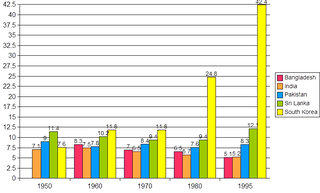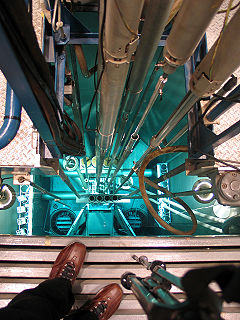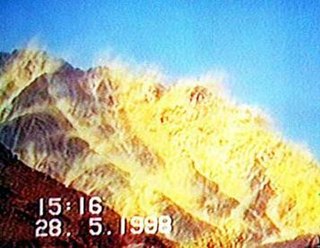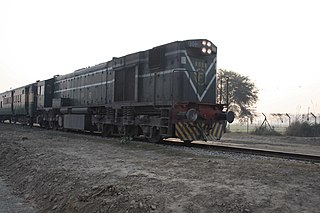 W
WThe 1970s operation in Balochistan was a five-year military conflict in Balochistan, the largest province of Pakistan, between the Pakistan Army and Baloch separatists and tribesmen that lasted from 1973 to 1978.
 W
WThe Delhi Agreement was a trilateral agreement signed between India, Pakistan and Bangladesh on 28 August 1973; and ratified only by India and Pakistan. It allowed the repatriation of prisoners of war and interned officials held in the three countries after the 1971 Bangladesh Liberation War. The agreement has been criticised for Pakistan's failure to repatriate Urdu-speakers in Bangladesh and not holding to account 195 senior military officials accused of breach of conduct during war.
 W
WThe Federal Security Force (FSF) was a paramilitary/secret police force created by Zulfiqar Ali Bhutto, while he was the President of Pakistan. Established in 1972, created as a civil task force of the federal government, this was used as a substitute to the use of army personnel in day to day issues of civilian life, ostensibly to assist the civil administration and the police in the maintenance of law and order without requiring the intervention of the military.
 W
WThe Hamoodur Rahman Commission, was a judicial inquiry commission that assessed Pakistan's political–military involvement in East-Pakistan from 1947 to 1971. The commission was set up on 26 December 1971 by the Government of Pakistan and chaired under Chief Justice Hamoodur Rahman.
 W
WSince the Partition of British India in 1947 and subsequent creation of the dominions of India and Pakistan, the two countries have been involved in a number of wars, conflicts, and military standoffs. A long-running dispute over Kashmir and cross-border terrorism have been the predominant cause of conflict between the two states, with the exception of the Indo-Pakistani War of 1971, which occurred as a direct result of hostilities stemming from the Bangladesh Liberation War in erstwhile East Pakistan.
 W
WThe Dr. A. Q. Khan Research Laboratories, or KRL for short, is a federally funded, multi-program national research institute and national laboratory site primarily dedicated to uranium enrichment, supercomputing and fluid mechanics. It is managed by the Ministry of Energy for the Government of Pakistan. The laboratory is located in Kahuta, a short distance north-east of Rawalpindi, Punjab, Pakistan.
 W
WThe Karakoram Highway is a 1,300 km (810 mi) national highway which extends from Hasan Abdal in the Punjab province of Pakistan to the Khunjerab Pass in Gilgit-Baltistan, where it crosses into China and becomes China National Highway 314. The highway connects the Pakistani provinces of Punjab and Khyber Pakhtunkhwa plus Gilgit-Baltistan with China's Xinjiang Uyghur Autonomous Region. The highway is a popular tourist attraction and is one of the highest paved roads in the world, passing through the Karakoram mountain range, at 36°51′00″N 75°25′40″E at maximum elevation of 4,714 m (15,466 ft) near Khunjerab Pass. Due to its high elevation and the difficult conditions in which it was constructed, it is often referred to as the Eighth Wonder of the World. The highway is also a part of the Asian Highway AH4.
 W
WKhan Amirzadah Khan was a Khudai Khidmatgar and a leader of the National Awami Party in Pakistan. He was born on 15 November 1918 in the house of Khan Khoidad Khan at Bakhshali village, Mardan District in the province of Khyber Pakhtunkhwa formerly known as North West Frontier Province Khyber Pakhtunkhwa. He was an active participant of Khudai Khidmatgar Organization of Great freedom fighter KHAN ABDUL GHAFFAR KHAN since his student life, Amirzada Khan started active politics with National Awami Party and remained President of National Awami Party District Mardan until 1972 when he remained senior Minister of the province(Provincial Minister of Law, Education and Parliamentary Affairs).
 W
WThe Nationalisation process in Pakistan was a policy measure programme in the economic history of Pakistan, first introduced, promulgated and implemented by Prime Minister Zulfikar Ali Bhutto and the Pakistan Peoples Party to lay the foundation of socialist economics reforms to improve the growth of national economy of Pakistan. Since the 1950s, the country had undergone a speedy industrialisation and became an industrial paradise in Asia. But, as time progressed, the labour trade unions and labour-working class had increasingly strained relations with the industrial business oligarch class, having neglected to improve working conditions and failing to provide a healthy and safe environment for the workers in these industrial industries.
 W
WThe Pakistan Atomic Research Reactor or (PARR) are two nuclear research reactors and two other experimental neutron sources located in the PINSTECH Laboratory, Nilore, Islamabad, Pakistan.
 W
WThe Pakistan National Alliance, was a populist and consolidated right-wing political alliance, consisting of nine political parties of the country. Formed in 1977, the country's leading right-wing parties agreed upon to run a political campaign as a single bloc against the left oriented PPP in the 1977 general elections.
 W
WProject-706, also known as Project-726 was a codename of a project to develop Pakistan's first atomic bomb using uranium. At the same time, Pakistani nuclear technology scientists and engineers gained expertise in the use of reactor-grade plutonium and successfully produced weapons grade plutonium by the early 1980s.
 W
WThe Ras Koh Hills is a range of granite hills forming part of the Sulaiman Mountain Range in the Chagai District in Pakistan's Balochistan province. The word "Ras" means "gateway" and the word "Koh" means "mountain" in Balochi. Ras Koh, therefore, means "Gateway to the Mountains." Pakistan's first nuclear tests were carried out in the Ras Koh Hills on 28 May 1998.
 W
WThe Samjhauta Express is a bi-weekly train — Thursday and Monday — that runs between Delhi and Attari in India and Lahore in Pakistan. The word Samjhauta means "agreement", "accord" and "compromise" in both Hindi and Urdu.
 W
WThe Simla Agreement, also spelled Shimla Agreement, was a peace treaty signed between India and Pakistan on 2 July 1972 in Shimla, the capital city of the Indian state of Himachal Pradesh. It followed the Indo-Pakistani War of 1971, which began after India intervened in East Pakistan as an ally of Bengali rebels who were fighting against Pakistani state forces in the Bangladesh Liberation War. The Indian intervention proved decisive in the war and led to East Pakistan's breakaway from its union with West Pakistan and the emergence of the independent state of Bangladesh.